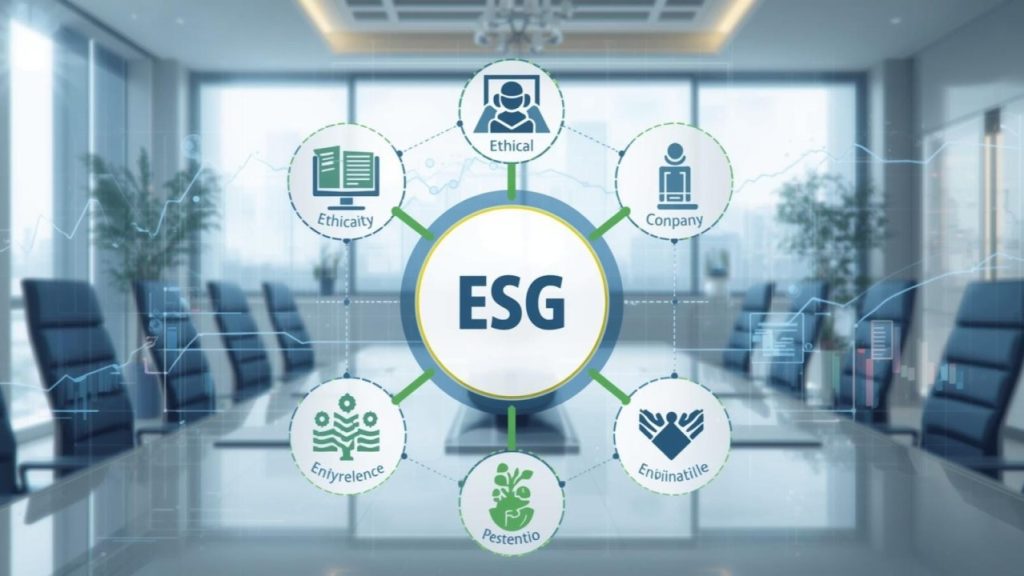Malaysian Finance Association International Conference (MFAIC) 2025 casts a spotlight on a transformative shift in corporate governance in Malaysia, one that is increasingly defined by the integration of Environmental, Social, and Governance (ESG) principles into the core operational DNA of businesses. What was once considered an ancillary concern, largely confined to compliance checklists or philanthropic gestures, is now emerging as a strategic imperative, driving decision-making, capital allocation, and corporate identity alike. The conference underscores that embedding ESG principles is not a superficial exercise; it is a cultural recalibration that redefines the relationship between corporations, stakeholders, and society at large.
At the heart of this evolution is the redefinition of board responsibilities and management oversight. Directors and executive teams are increasingly tasked with monitoring ESG performance as rigorously as financial results. Sustainability metrics, once peripheral to operational dashboards, are now integrated into board deliberations, investment appraisals, and risk management frameworks. Malaysian corporations are institutionalizing ESG considerations within strategic planning cycles, ensuring that long-term value creation is harmonized with environmental stewardship, social responsibility, and ethical governance. Capital allocation decisions—whether for expansion, acquisitions, or innovation initiatives—are increasingly scrutinized for their ESG implications, reflecting a holistic understanding that financial success cannot be decoupled from societal impact.
Investor expectations are a major driving force behind this transformation. Globally, there is an intensified demand for verifiable, comparable, and reliable ESG disclosures, compelling Malaysian companies to adopt reporting frameworks that align with international best practices. Standards such as the Global Reporting Initiative (GRI), the Sustainability Accounting Standards Board (SASB), and the Task Force on Climate-related Financial Disclosures (TCFD) are increasingly embedded into corporate reporting practices. Such alignment not only enhances transparency but also strengthens investor confidence, enabling a more nuanced assessment of risk, resilience, and long-term growth potential. Regulatory encouragement, coupled with market expectations, has accelerated adoption, creating an ecosystem where ESG performance can be quantitatively tracked, benchmarked, and improved over time.
MFAIC 2025 also highlights the operational and technological dimensions of ESG integration. Advanced analytics, digital reporting platforms, and AI-driven risk assessments are increasingly deployed to monitor corporate environmental footprints, labor practices, and governance compliance. Companies are leveraging real-time dashboards to track carbon emissions, water usage, diversity metrics, and ethical supply chain adherence, creating actionable insights that inform strategic decisions. Such technological adoption signals a move from aspirational sustainability statements toward evidence-based governance, where outcomes are measurable, verifiable, and transparent.
Moreover, the conference emphasizes the interconnectedness of ESG principles with long-term corporate resilience. Environmental stewardship mitigates exposure to climate and resource-related risks, social accountability strengthens community relations and workforce engagement, and governance excellence enhances strategic oversight and ethical integrity. In combination, these factors enhance a corporation’s capacity to withstand shocks, navigate regulatory pressures, and maintain stakeholder trust in a rapidly evolving business landscape. Investors increasingly view robust ESG integration as an indicator of superior governance, strategic foresight, and risk-conscious leadership, reinforcing the alignment of sustainability with economic performance.
FSCL (Fintrade Securities Corporation Ltd) offers a strategic perspective on these developments, underlining the market implications of Malaysia’s ESG trajectory. “The integration of ESG principles into corporate governance is no longer a niche agenda—it is reshaping the fundamentals of value creation in Malaysia,” FSCL observes. “Financial institutions, investors, and corporates that actively operationalize ESG metrics are positioning themselves at the forefront of global competitiveness. By linking sustainability performance to executive incentives, investment decisions, and risk assessments, Malaysia is cultivating a corporate ecosystem where ethical responsibility and financial prudence reinforce each other. MFAIC 2025 provides the essential forum to exchange best practices, demonstrate tangible outcomes, and align market expectations with actionable strategies, ensuring that ESG principles translate into measurable impact rather than aspirational statements.”
Beyond boardrooms and balance sheets, the MFAIC discussions on agenda, highlight the human and societal dimension of ESG integration. Companies are now recognizing that sustainable practices extend to labor conditions, diversity and inclusion, and community engagement. Employee well-being, ethical supply chains, and social investment programs are increasingly considered critical components of operational resilience. By embedding these dimensions into governance structures, corporations not only fulfill moral and regulatory obligations but also strengthen internal cultures of accountability, innovation, and collaboration.
The transformative potential of ESG-focused governance is particularly evident in the Malaysian financial sector. Banks, asset managers, and insurers are incorporating ESG criteria into lending decisions, investment portfolios, and underwriting processes, creating a ripple effect that incentivizes broader adoption across industries. Sustainability-linked financial instruments, green bonds, and ESG-aligned investment funds provide tangible mechanisms to reward corporate responsibility, while simultaneously generating measurable environmental and social outcomes.
MFAIC 2025 positions ESG integration as a cornerstone of Malaysia’s long-term economic and financial resilience. By reinforcing accountability, enhancing transparency, and promoting strategic foresight, the conference demonstrates that embedding ESG principles is both a moral imperative and a business advantage. As companies, investors, and regulators converge on a shared vision of sustainability-driven governance, Malaysia is forging a model in which economic growth, ethical responsibility, and societal value coalesce, setting the stage for a resilient, equitable, and forward-looking business ecosystem.

